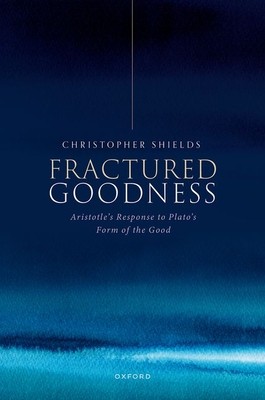
- We will send in 10–14 business days.
- Author: Christopher Shields
- Publisher: Oxford University Press, USA
- ISBN-10: 0198915691
- ISBN-13: 9780198915690
- Format: 15.5 x 22.9 x 2.8 cm, hardcover
- Language: English
- SAVE -10% with code: EXTRA
Reviews
Description
Aristotle offers a searing rejection of Plato's commitment to a Form of the Good; core among his complaints is that goodness is not univocal, that is, that there is no single essence-specifying account of goodness covering all the many varieties of goodness there are. Aristotle's anti-Platonic arguments have been variously received: many of his readers regard them as wholly successful while many others maintain they are abject failures. This volume reconstructs and assesses these arguments afresh and asks a simple question: if they are sound, what is left for Aristotle? In particular, what principles does he have to vouchsafe the commensurability of the good things he himself regards as commensurable?
EXTRA 10 % discount with code: EXTRA
The promotion ends in 18d.17:03:26
The discount code is valid when purchasing from 10 €. Discounts do not stack.
- Author: Christopher Shields
- Publisher: Oxford University Press, USA
- ISBN-10: 0198915691
- ISBN-13: 9780198915690
- Format: 15.5 x 22.9 x 2.8 cm, hardcover
- Language: English English
Aristotle offers a searing rejection of Plato's commitment to a Form of the Good; core among his complaints is that goodness is not univocal, that is, that there is no single essence-specifying account of goodness covering all the many varieties of goodness there are. Aristotle's anti-Platonic arguments have been variously received: many of his readers regard them as wholly successful while many others maintain they are abject failures. This volume reconstructs and assesses these arguments afresh and asks a simple question: if they are sound, what is left for Aristotle? In particular, what principles does he have to vouchsafe the commensurability of the good things he himself regards as commensurable?


Reviews